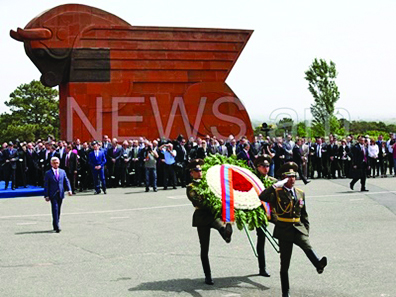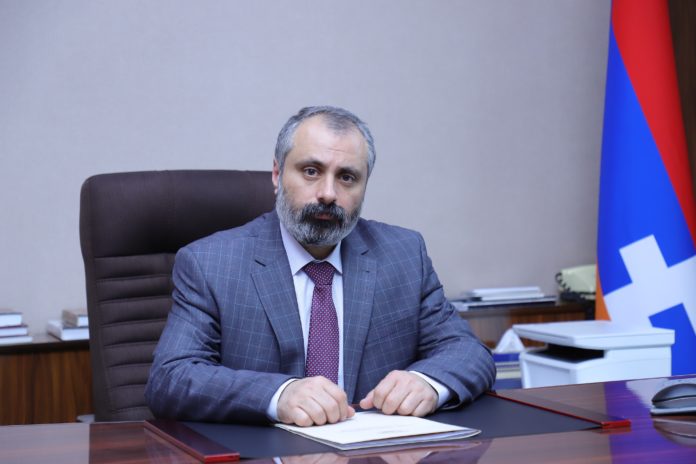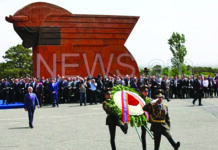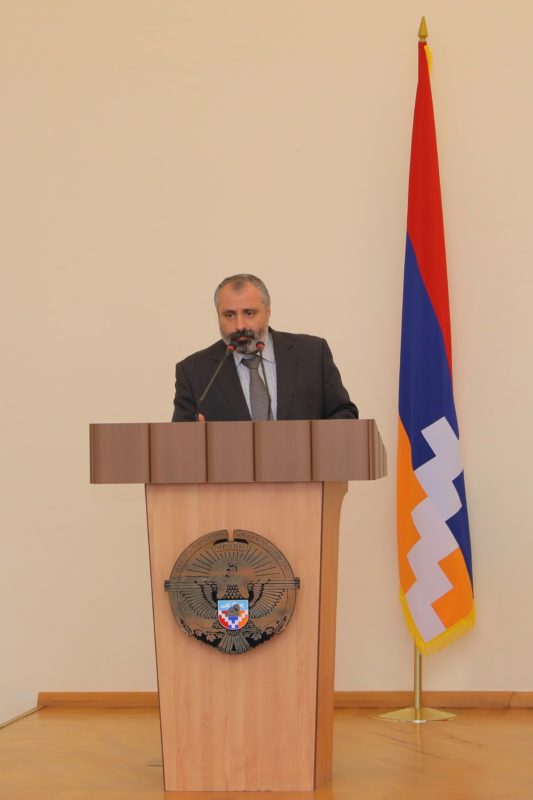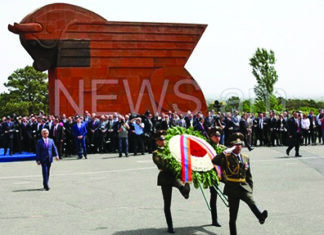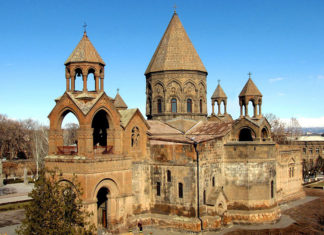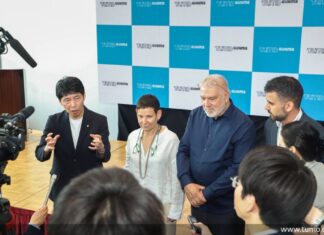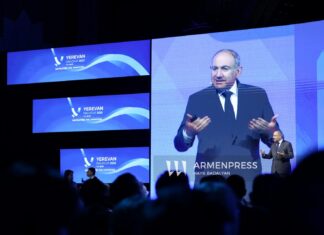STEPANAKERT – David (Davit) Babayan is a familiar figure to those interested in the Artsakh Republic or Nagorno Karabakh. He has held various Artsakh government positions since 2000 and since 2013 has often acted as a governmental spokesperson as he was head of the Central Information Department and Deputy Chief of Staff for the president. He was appointed as foreign minister this January, part of the cabinet changes in the aftermath of the recent Karabakh war. He spoke recently with the Mirror-Spectator about conditions in the country and region.
The losses of the recent war, including Shushi, the cultural center of Artsakh located in a strategic elevated position, were foremost on his mind. He declared, “Artsakh is like a wounded person who has lost one of its legs, one of its arms, and one of its eyes, and whose heart is wounded. We are in a kind of emergency department. Every day we get up and look at Shushi.”
He strongly opposed internal Armenian polarization and politicization of the situation, stating “a society divided into several pieces which detest each other cannot survive.”
He stressed that Artsakh must remain above internal political issues and must have a crucial political voice: “Artsakh is a value…If Artsakh says something it should be an imperative or at least a very strong message to the entire Armenian nation, both in Armenia and the diaspora. This is one of the key components for maintaining our status as a geopolitical player.”
Babayan said, “We have to be led by patriotism and our strong and unshakeable faith, our notion of friendship and mutual respect. These are the most important factors of our greatness…We always think of the material components of territories. These are important, but we have much more important things to do in order to survive.”
He said that the majority of Artsakh’s population has returned, yet around 1/3 of the population, some 45,000 citizens, remained in Yerevan still. Many of them used to live in Hadrut, Kashatagh, Karvachar, and areas of Martuni, Askeran and Martakert, regions which are now occupied by Azerbaijan. Babayan said that while Artsakh needs to bring them back, “we need some time to create appropriate conditions, construct houses for them and provide them with jobs and other opportunities for living.” At present, around half the population in Artsakh live in its capital of Stepanakert and half in the villages. In both cases, he noted, either old houses must be renovated or new ones constructed for them.
